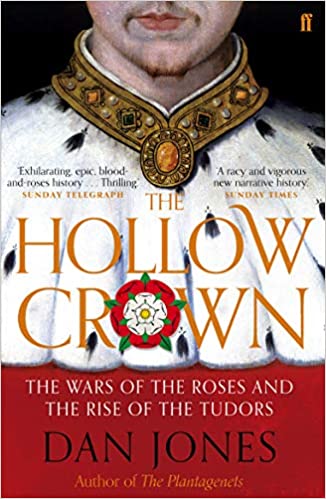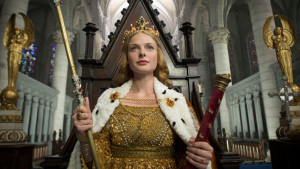
Let’s be honest: lockdown sucks! But it does mean there’s more time for reading. Over the next couple of weeks, I will review 10 books which all Royal History Geeks should add to their reading list.
For many years ‘The Wars of the Roses’ were confined to a paragraph or two in the introduction to Tudor history books. We, the readers, had to endure just a few lines about random battles, murderous uncles and cooky Plantagenet cousins. If we did, we knew we’d be treated to tales of religious reform, six wives and female succession.
But we didn’t know what we were missing. Under the skilful craftmanship of Dan Jones, this series of bloody conflicts finally take their place in the spotlight.
The 370-page publication spans a 45-year time period and touches on the reigns on five kings. But despite the breadth of the topic, Jones paints a vivid and detailed picture of the breakdown of England’s political system and the lust for power that followed it.
The book begins with the marriage of Henry VI’s parents. By beginning the narrative here rather than an earlier point in history, Jones is implicitly nailing his colours to the mast. Committed to the Tudor perspective that the conflicts have their origins in the downfall of Richard II? You’re going to disappointed. Sympathetic to the Whig notion that Edward III doomed his descendants to disaster? Look away now. Like recent scholarship, Jones roots the cause of conflict squarely in the ineffectual kingship of the last Lancastrian ruler.
As Henry grows, his inability to perform even the most basic facet of Kingship becomes increasingly obvious. For the best part of two decades the political establishments attempts to create a mechanism for governing England without a functioning monarch. But in the run up to 1450 it all came crumbling down
The 1450s is a decade of battles, high politics and low humanity. With vivid storytelling the author brings them to life. Characters like Margaret of Anjou, Richard of York and a succession of Somerset Dukes become real to us. Jones correctly notes that it is not until York puts his hand on the throne and claims the crown in 1460, that the Wars of the Roses can truly be called a dynastic conflict.
The book bounces through the early years of Yorkist rule under Edward IV. Like most accounts of the era, it focuses on his unpopular marriage to Elizabeth Wydeville, which in turn leads to a rebellion by Warwick and the second phases of the wars. The rest of Edward’s reign is centred on the fallout with his brother, Clarence. Eventually we follow the dramatic events of Edwards’s death, the brief succession of his son and Gloucester’s usurpation of the throne as Richard III. The author does well not to dwell on the fate of the princes in the tower. As Alison Weir has demonstrated, that topic requires a book of its own. (But let’s be honest, we all now Richard did it.)
In events familiar to Royal History Geeks, Henry VII ultimately wins the crown at Bosworth field. He holds the throne for almost 25 years and is succeeded by his son. But it is years before he is free from the threats of pretenders.
Like its predecessor, ‘The Plantagenets’, the book is ambitious in its scale. As a result, it cannot focus on any of either Edward IV or Henry VII’s reign in detail. But it does provide a cohesive overview that is essential for anyone looking to study either king in greater depth.
The book is lively and well crafted. Some of the sentences are almost poetic. It’s clear from the first few pages that Jones has grown as a writer since 2012’s ‘The Plantagenets’. (This may sound a little patronising. Let me be clear: I would give my right arm to be able to write a book as good as the Plantagenets.)
But perhaps the greatest achievement of this book is the way it makes ‘recent’ and innovative scholarship accessible. In the last three decades, historians such as John Watts and Christine Carpenter have boldly attempted to reconstruct the Kingship of Henry VI. They drive home its fundamental inadequacy from its inception. Jones’s work is the first attempt I have come across to draw on this scholarship and present it in the popular genre.
Since the discovery of Richard III’s remains, interest in the Wars of the Roses has reached fever pitch. Source material is scant and scholarship is complicated. But through well-written and beautifully crafted accounts like this, the public can access the latest thinking, correct misconceptions that arise from fiction and get a grip on one of England’s most intriguing sagas. Dan Jones sets the standard. If only more would rise to it.
The Hollow Crown – The Wars of the Roses and the Rise of the Tudors, is available from Amazon.
However, please consider supporting your local book seller. If you are based in the UK, search for your local book seller at the Book Seller Associations website.


